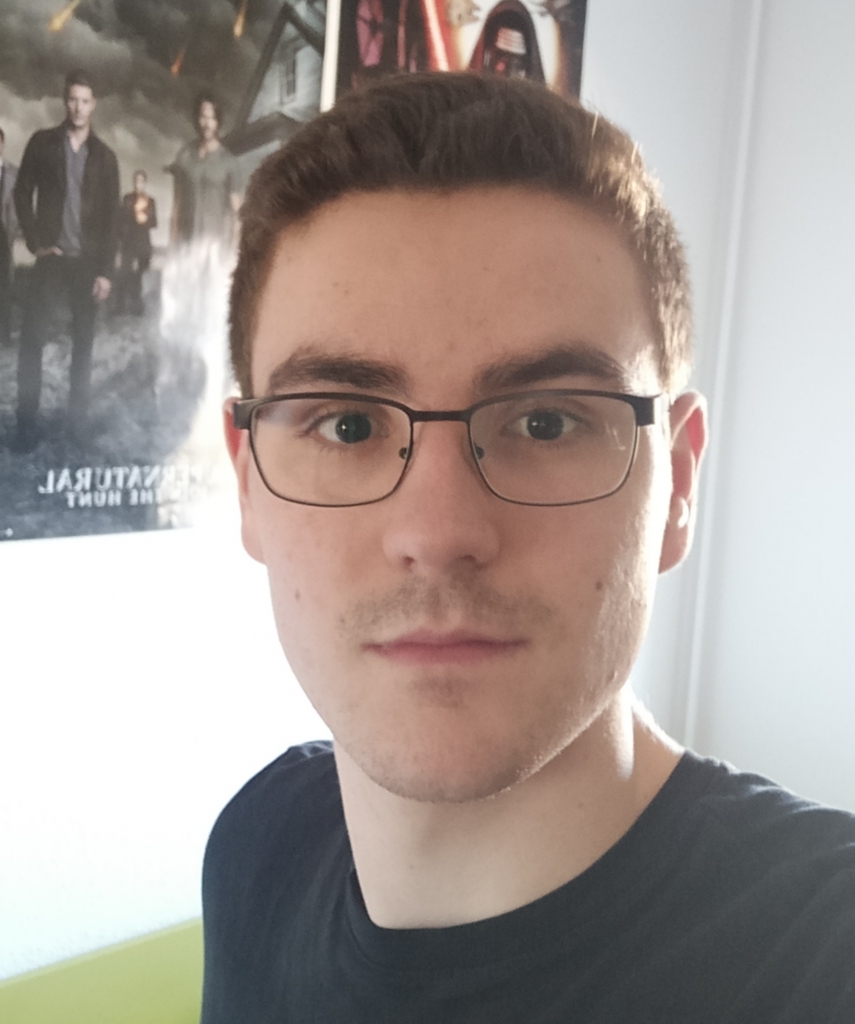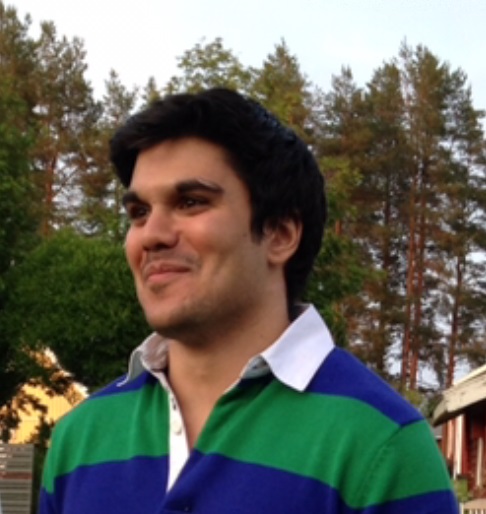Florian Heyde and Alexander Lindström work on the projects supervised by Ludvig Lizana, senior lecturer at Department of Physics, IceLab. Here they tell us about their experiences.
Florian
Exchange Master’s student in Technical Physics, Ilmenau University of Technology, Germany

I am currently doing my ‘Advanced Project in Physics’ supervised by Ludvig Lizana, and Rikard Eriksson, Professor at the Department of Geography. Together, we are looking at labour market regions in Sweden and the diversity of people living there (age, sex, city of birth, employment status, city of work, etc.). We want to see how every country’s big labour market region has been evolving. For example, we know that the growing number of people working in Stockholm contributes to the city’s general population increase. It could be that Stockholm’s working population is growing but the city’s diversity has been decreasing because not many people from all over Sweden move there to work. To quantify this diversity, we apply an entropy model in our project. We analyse the data on around 5-6 million people in the 20-60 age group who were working in Sweden in 1960-2015.
I have found interesting to work on a topic where we could apply a physical model on a social/ geographical problem. Thanks to the project, I have got some experience of working with a huge amount of data.
Alexander Lindström

Master’s student in Computational Physics, Umeå University, Sweden
I work with Ludvig Lizana, senior lecturer at the Department of Physics, and Sara Wilson, senior lecturer at the Department of Integrative Medical Biology. Together, we try to figure out how neurons grow in tissues. The original idea was to use concepts from the Wave function collapse (an algorithm for generating images which are similar to an input image) to analyze a set of images of neurons. Since the project started we have pivoted somewhat and now I am mainly looking at the merits of using the Wave function collapse to generate null models for networks. Hopefully, we will see good results at least for certain types of networks.
I have been enjoying the environment, and here I have had a great opportunity to interact with people from different scientific disciplines. It also lets you get a glimpse into the every-day life of a researcher at a university. From my perspective, this is something which can be lacking in regular university education.
Excited about IceLab and wish you could join us as a team member? Our researchers often have opportunities for Master’s students, PhD scholarships and Postdoctoral Fellowships. Browse our currently open positions or contact a researcher directly and see what options we have for you.
